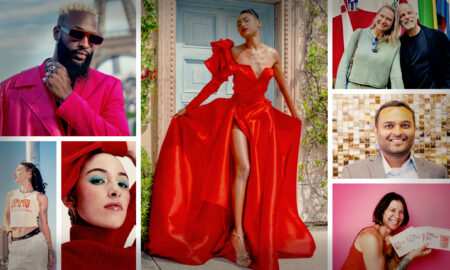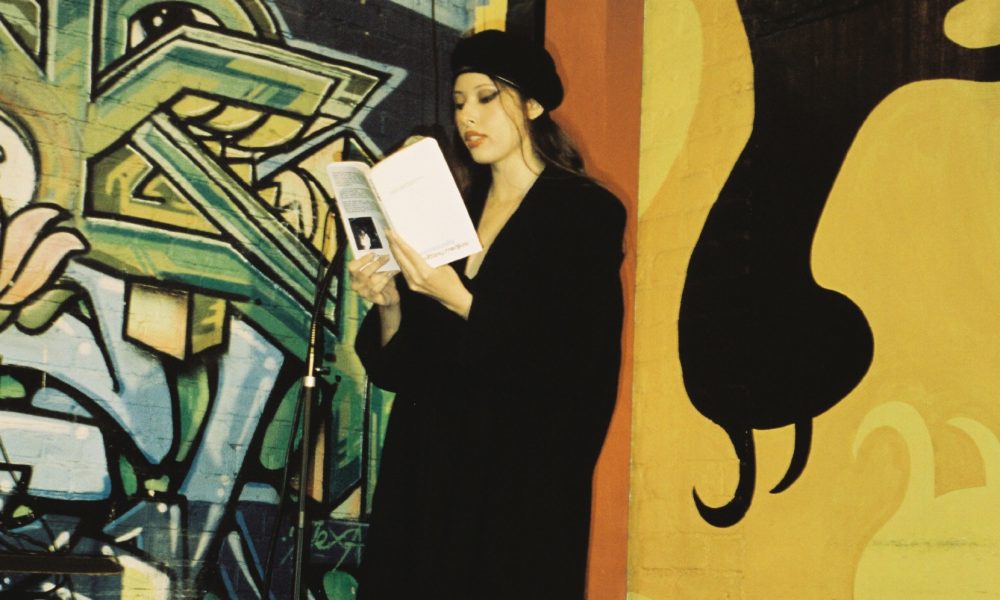

Today we’d like to introduce you to Brittany Menjivar.
Hi Brittany, can you start by introducing yourself? We’d love to learn more about how you got to where you are today.
I don’t recall ever deciding I wanted to be a writer. It was a given as soon as I could read. Although neither of my parents are involved in the arts (I grew up in suburban Maryland, far from the Hollywood machine), they’ve always encouraged my passion for storytelling, which has been such a blessing. When I was three years old, I told them I wanted to make a movie with my Barbie dolls; they typed out a “script” as I dictated it and helped me shoot a scene on a camcorder. Years later, when I started working as a teen music journalist, my dad would drive me to DC and Baltimore for concerts and interviews. I could offer a million examples of their unwavering support for me—these are just two of them.
Growing up, I was fixated on the idea of becoming a teen author. I cranked out novels and sent them to publishers and agents. At the time, I was crushed after they mailed me rejections—but now I’m so thankful that those early works aren’t out in the world. I’ve come to accept that not everything you write is meant to be shared with a wider audience—sometimes, you need to play and explore outside the public sphere in order to strengthen your craft.
I stacked my schedule with creative writing and film electives in high school. I matriculated to Yale, where I double majored in English (pursuing the Creative Writing Concentration) and Film & Media Studies. There, I was grateful to receive mentorship from such writers as Michael Cunningham, Anne Fadiman, and James Surowiecki. During this time, I also applied to a screenwriting competition hosted by AT&T called the AT&T Hello Lab. My script was selected as one of five screenplays to be adapted into a fully funded short produced by AT&T and Fullscreen. The experience was entirely surreal—I was flown out from DC to Los Angeles and got to see the West Coast for the first time, something I had been dreaming about since I was a kid. I knew that I needed to spend more time there—so when COVID struck, I took a gap semester and moved across the country for a few months. I got a job at New Horizons Picture Corporation, working for Julie and Roger Corman, who taught me so much about the industry and always had the most exciting stories to share.
After graduating, I moved to Los Angeles to work for the Cormans full-time. I also got involved in the alt-lit scene, attending (and eventually reading) series like Casual Encounters and submitting to lit mags like Spectra and Dream Boy Book Club. It’s through this scene that I met Erin Satterthwaite, co-founder of Car Crash Collective, and Jonathan Blake Fostar (of Dream Boy Book Club), who published my debut poetry and prose collection. Now, I’m working freelance as a writer and journalist. I love being able to set my own schedule and getting paid to read and watch movies and talk to interesting people.
Alright, so let’s dig a little deeper into the story – has it been an easy path overall, and if not, what were the challenges you’ve had to overcome?
Not entirely! In fact, the name “Car Crash Collective” was partially inspired by a near-fatal car crash I experienced in 2021. A semi-truck hit me and my dad from behind; our car spun, and ultimately, four or five vehicles collided. In the chaos, another semi-truck went sailing through my window and stopped just inches away from my head. By some miracle, I walked away virtually unscathed, but processing the event mentally and emotionally was difficult.
The first time I ever met Erin, I told her this story—and believe it or not, she was T-boned on the way home from our hangout. We were thus trauma-bonded for life and became the best of friends. When we decided to start a reading series together, “Car Crash Collective” seemed like the perfect title. In David Cronenberg’s “Crash” (based on the equally brilliant novel by J.G. Ballard), Robert Vaughan says, “The car crash is a fertilizing rather than a destructive event,” and we like to think that speaks to the ethos of our project—every disaster provides an opportunity for rebirth.
Alright, so let’s switch gears a bit and talk business. What should we know about your work?
A lot of my writing deals with parasocial interactions and the way they’re mediated by the Internet. My short film, “Fragile.com,” explores these topics via the central conceit of a website where people livestream themselves crying to an eager audience of voyeurs. When I became more prolific as a poet and fiction writer, I noticed that the parasocial relationship had emerged as a recurring theme in my work—many of my poems stemmed from surreal dreams about celebrities (or Instagram mutuals), and my short stories tended to study how celebrity functions in different environments (at the high school or community level, online, in Hollywood, and so on). Thus, I decided to build a collection around this theme—”Parasocialite,” published by Dream Boy Book Club this past month. The title is a portmanteau of the words “parasocial” and “socialite,” but many have pointed out that it calls to mind “parasite,” which feels fitting.
A lot of my work grapples with what it means to exist in the world as a young, objectified woman, but I try to deviate from more mainstream narratives about “girlhood” and “womanhood” (two words whose meaning has always seemed elusive to me) by playing with horror tropes and absurdism. Adolescence isn’t an edit of the 1997 “Lolita” film set to a Lana Del Rey song (although I do love Lana Del Rey). It’s not simply and beautifully “tragic.” It’s disorienting and surreal and often creepy. Similarly, Los Angeles isn’t as glamorous as the legends make it out to be—the city’s emphasis on beauty and performance encourages people to conceive of both themselves and others as cartoons, creating a sinister, uncanny valley effect. I want my writing to lay bare everything that is eerie and weird and otherworldly about being a young woman—or, more broadly, just being.
In terms of your work and the industry, what are some of the changes you are expecting to see over the next five to ten years?
I think writers are getting tired of resigning themselves to a “solitary profession” and are making a conscious effort to build community online and off, which I love. Readings are pulling in massive crowds; meme pages are celebrating literature. I’ve always been an extrovert, and I believe that it’s so important to surround yourself with other artists who can challenge you, teach you, and support you. I hope that rather than tempting writers to center the tenuous ideals of “clout” and “celebrity,” this new era encourages us to build genuine literary friendships.
Contact Info:
- Website: https://brittpop.substack.com/
- Instagram: @brittmenjivar
- Linkedin: https://www.youtube.com/watch?v=IAjLsdIgpcg&t=1s
- Twitter: @_brittpop_
- Other: https://www.dreamboybook.club/store/parasocialite
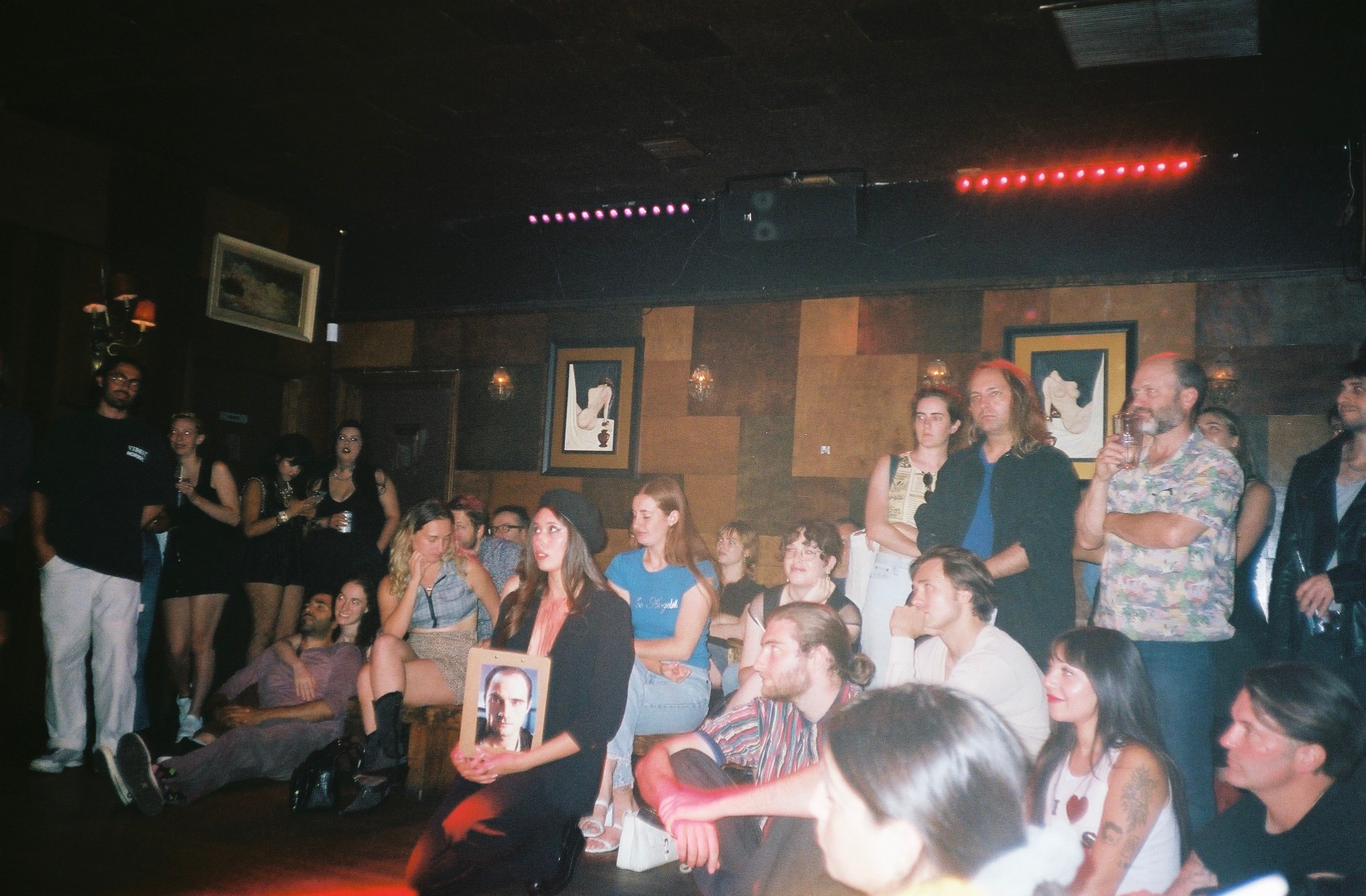
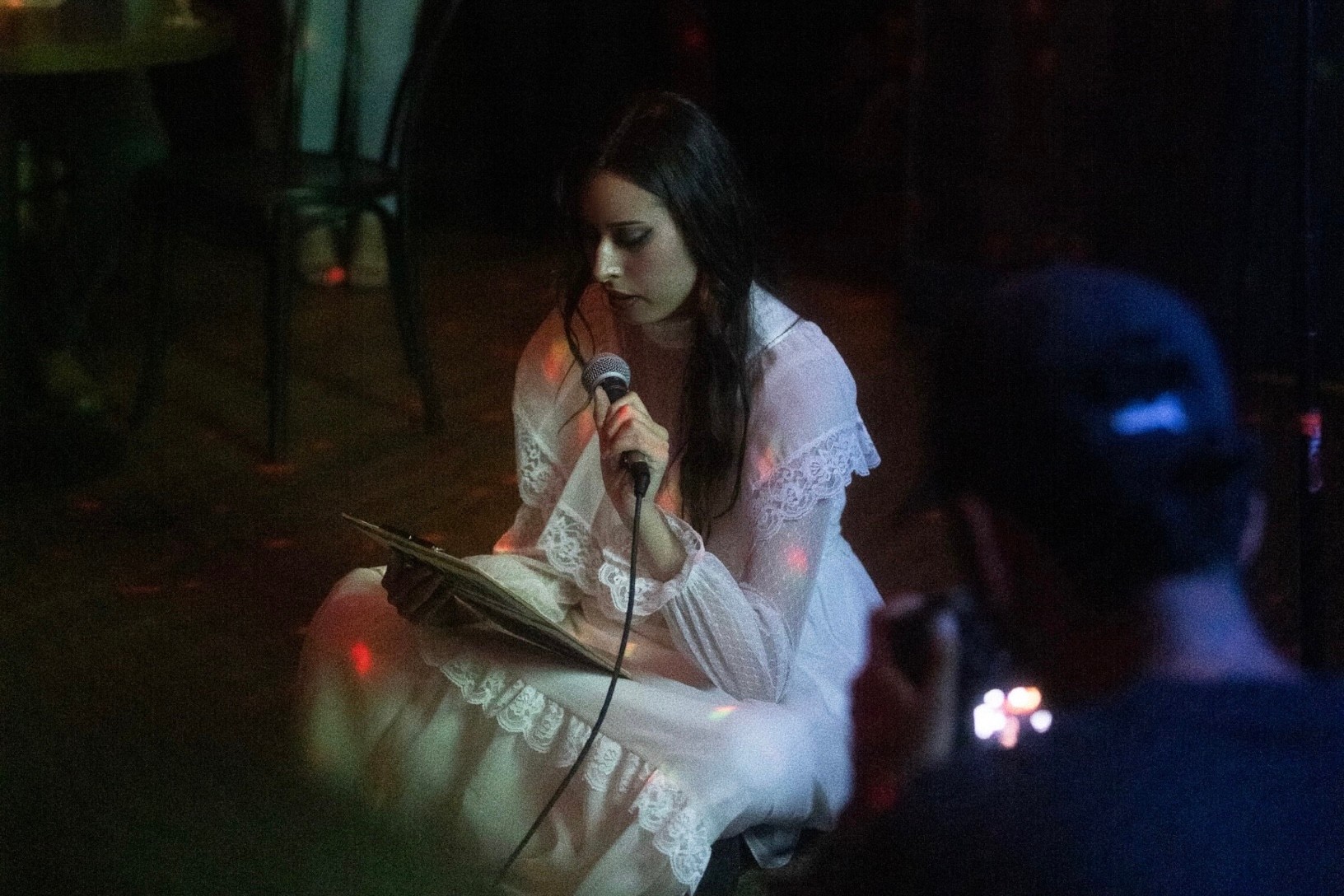
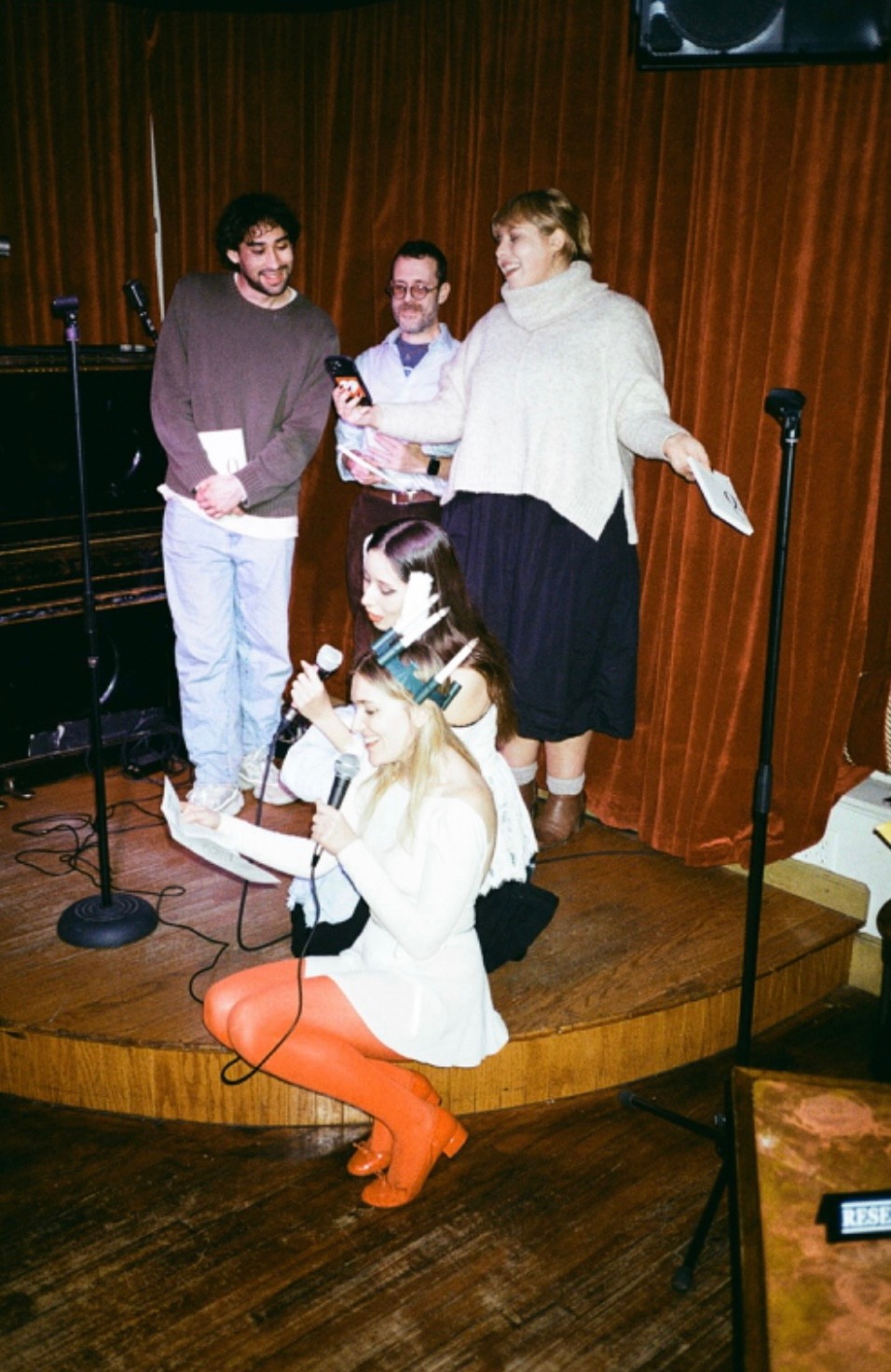
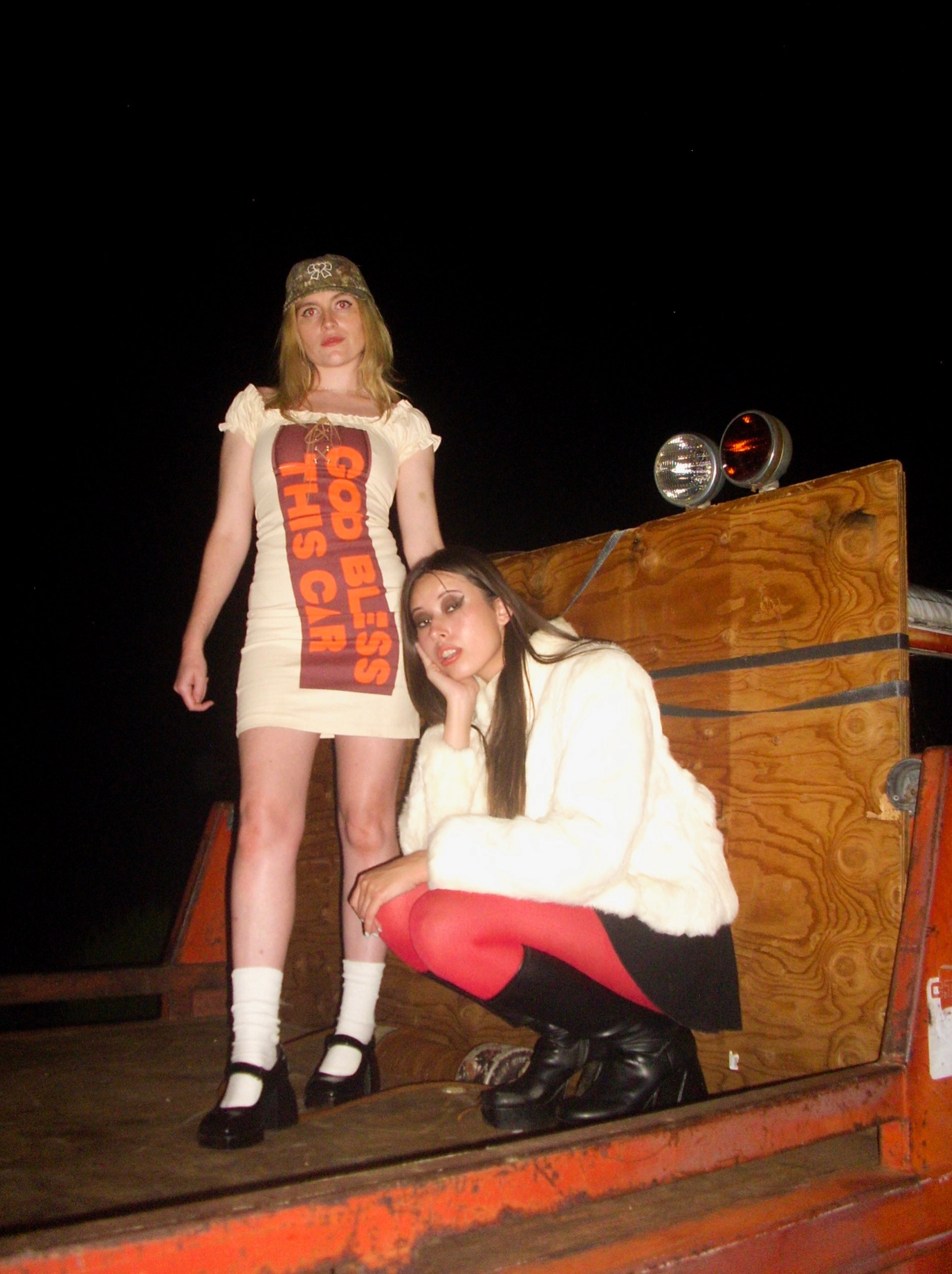
Image Credits
Samuel Braslow
Matt Weinberger
Mollie Ophelia
Subin Lee
Miranda Watters

